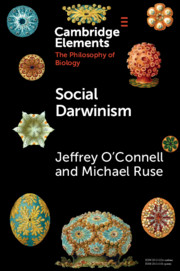Element contents
Social Darwinism
Published online by Cambridge University Press: 14 April 2021
Summary
- Type
- Element
- Information
- Online ISBN: 9781108879026Publisher: Cambridge University PressPrint publication: 29 April 2021
Bibliography
- 12
- Cited by

